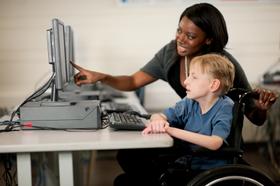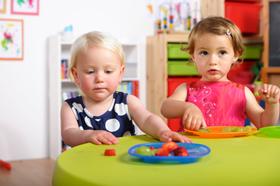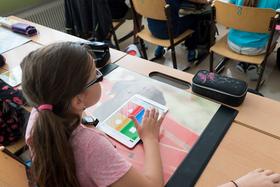Top Rankings
Linn-Mar Comm School District ranks among the top 20% of public school district in Iowa for:
Category
Attribute
Graduation Rate
Highest graduation rate (Top 5%)
Diversity
Most diverse schools (Top 1%)
Community Size
Largest student body (number of students) (Top 1%)
For the 2025 school year, there are 4 public preschools serving 1,699 students in Linn-Mar Comm School District. This district's average pre testing ranking is 8/10, which is in the top 30% of public pre schools in Iowa.
Public Preschools in Linn-Mar Comm School District have an average math proficiency score of 80% (versus the Iowa public pre school average of 70%), and reading proficiency score of 77% (versus the 69% statewide average).
Minority enrollment is 25% of the student body (majority Asian and Hispanic), which is less than the Iowa public preschool average of 27% (majority Hispanic).
Overview
This School District
This State (IA)
# Schools
12 Schools
474 Schools
# Students
7,462 Students
151,894 Students
# Teachers
513 Teachers
11,053 Teachers
Student : Teacher Ratio
15:1
15:1
Student By Grade
District Rank
Linn-Mar Comm School District, which is ranked within the top 30% of all 325 school districts in Iowa (based off of combined math and reading proficiency testing data) for the 2022-2023 school year.
The school district's graduation rate of 92% has decreased from 93% over five school years.
Overall District Rank
#93 out of 327 school districts
(Top 30%)
(Top 30%)
Math Test Scores (% Proficient)
(22-23)78%
68%
Reading/Language Arts Test Scores (% Proficient)
75%
70%
Science Test Scores (% Proficient)
69%
63%
Graduation Rate
(22-23)92%
90%
Students by Ethnicity:
Diversity Score
0.43
0.45
% American Indian
n/a
n/a
% Asian
8%
2%
% Hispanic
5%
13%
% Black
6%
6%
% White
75%
73%
% Hawaiian
n/a
1%
% Two or more races
6%
5%
All Ethnic Groups
District Revenue and Spending
The revenue/student of $16,871 is higher than the state median of $16,468. The school district revenue/student has stayed relatively flat over four school years.
The school district's spending/student of $16,098 is higher than the state median of $16,042. The school district spending/student has stayed relatively flat over four school years.
Total Revenue
$126 MM
$8,262 MM
Spending
$120 MM
$8,048 MM
Revenue / Student
$16,871
$16,468
Spending / Student
$16,098
$16,042
Best Linn-Mar Comm School District Public Preschools (2025)
School
(Math and Reading Proficiency)
(Math and Reading Proficiency)
Location
Grades
Students
Rank: #11.
Echo Hill Elementary School
(Math: 88% | Reading: 88%)
Rank:
Rank:
10/
Top 5%10
400 Echo Hill Road
Marion, IA 52302
(319) 730-3560
Marion, IA 52302
(319) 730-3560
Grades: PK-4
| 519 students
Rank: #22.
Bowman Woods Elementary School
(Math: 75-79% | Reading: 75-79%)
Rank:
Rank:
8/
Top 30%10
151 Boyson Rd Ne
Cedar Rapids, IA 52402
(319) 447-3240
Cedar Rapids, IA 52402
(319) 447-3240
Grades: PK-4
| 432 students
Rank: #33.
Linn Grove Elementary School
(Math: 75-79% | Reading: 70-74%)
Rank:
Rank:
7/
Top 50%10
2301 50th St
Marion, IA 52302
(319) 730-3500
Marion, IA 52302
(319) 730-3500
Grades: PK-4
| 399 students
Rank: #44.
Wilkins Elementary School
(Math: 75-79% | Reading: 65-69%)
Rank:
Rank:
6/
Top 50%10
2127 27th St
Marion, IA 52302
(319) 447-3380
Marion, IA 52302
(319) 447-3380
Grades: PK-4
| 349 students
Recent Articles

Understanding Self-Contained Classrooms in Public Schools
Learn about the history of public schools incorporating self-contained classrooms, and whether they are right for your child.

Can Naviance Succeed Improve College and Career Readiness?
Learn about a new student assessment system, Naviance Succeed, which provides tools and support to increase student college and career readiness. A number of school districts are using the tool this year in hopes of improving student performance through more accurate assessment process than are currently available.

Do You Need After School Day Care? Public Schools May Be the Solution
Learn about how your child's public school may be the best source of after school and vacation day care.





